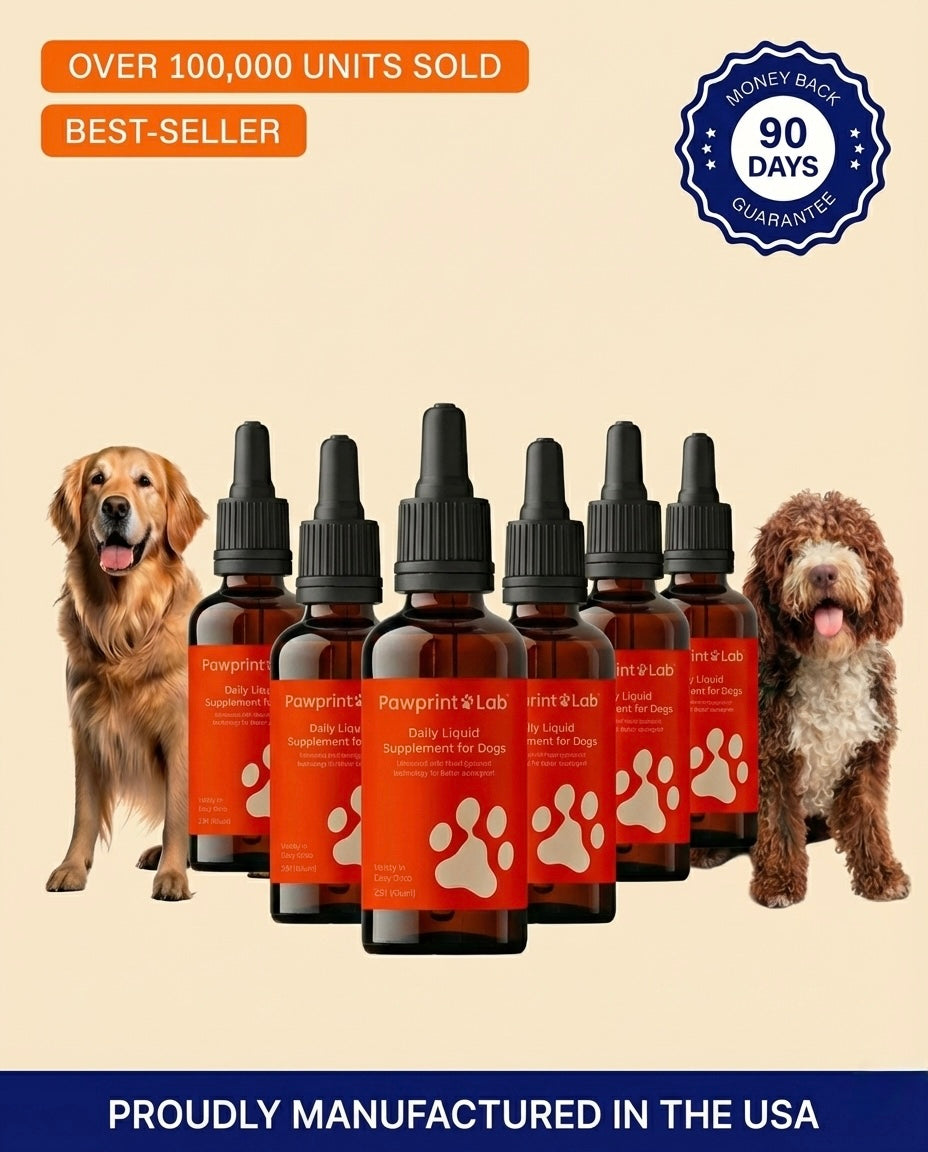Whole-Body Support in Every Dose






Inspired by Human Longevity Science. Made for Dogs.
You invest in your own health, longevity, and performance. Why not do the same for your dog? Pawprint Protocol is the first canine longevity supplement designed with cutting-edge biohacking principles used in human wellness.
Superior Absorption for Maximum Impact
Most pet supplements lose potency in digestion, leaving your dog with very few actual benefits. Pawprint Protocol uses nanoliposomal technology to deliver nutrients efficiently at the cellular level for up to 98% better absorption.
No powders or hard-to-chew tablets
Helps nutrients reach where they’re needed most
Mix with food or administer directly

Less than 1% of customers claim our Money Back Guarantee

















What Discerning Pet Parents Are Saying
Backed by Science. Built for Results
Pawprint Protocol is formulated using the latest longevity research in human and veterinary medicine.
From Nose to Tail, a Smarter Way to Support Your Dog’s Health
Even with the best diet, some essential nutrients are difficult for dogs to absorb. Pawprint Protocol delivers key longevity compounds in a highly bioavailable form for optimal health at every stage of life.
Questions? We’ve Got Answers.



























